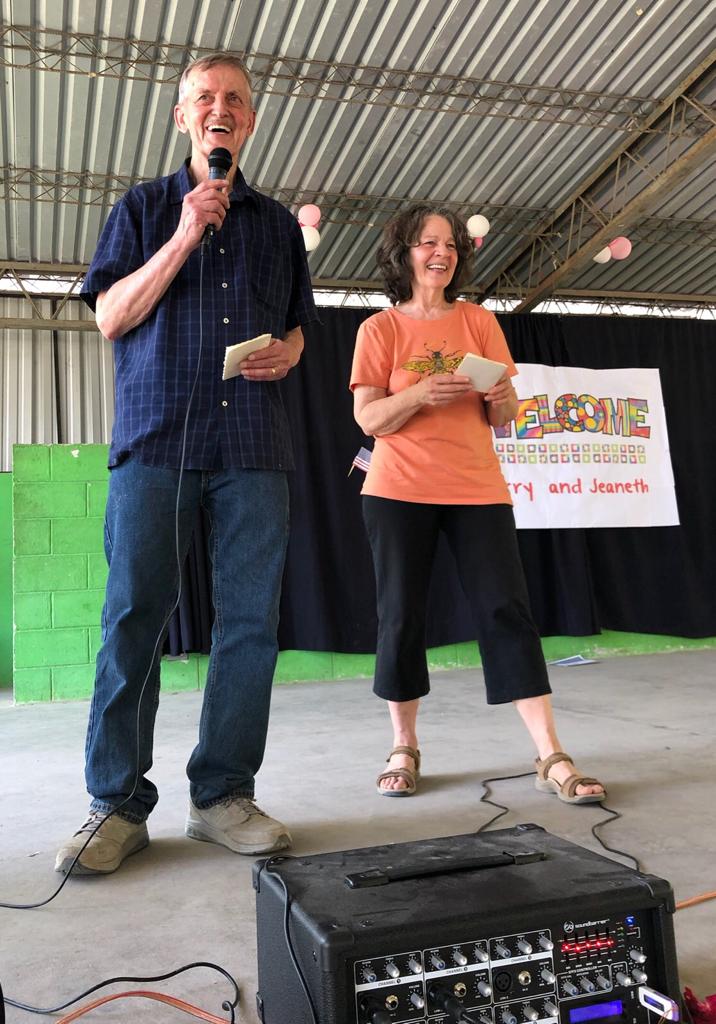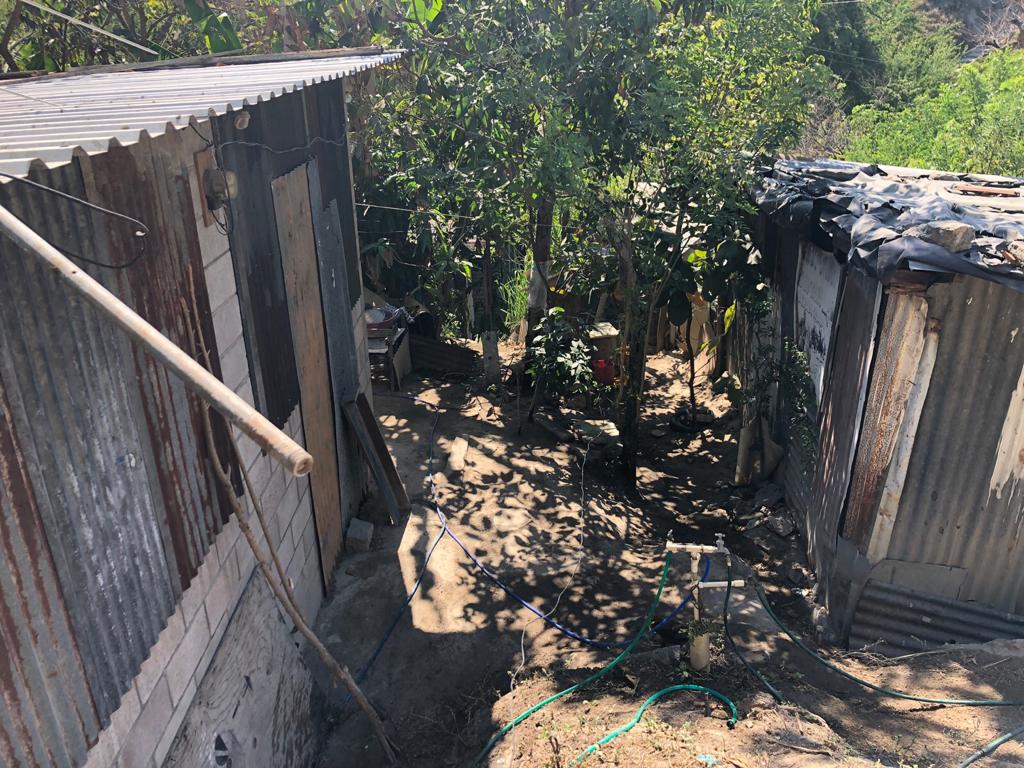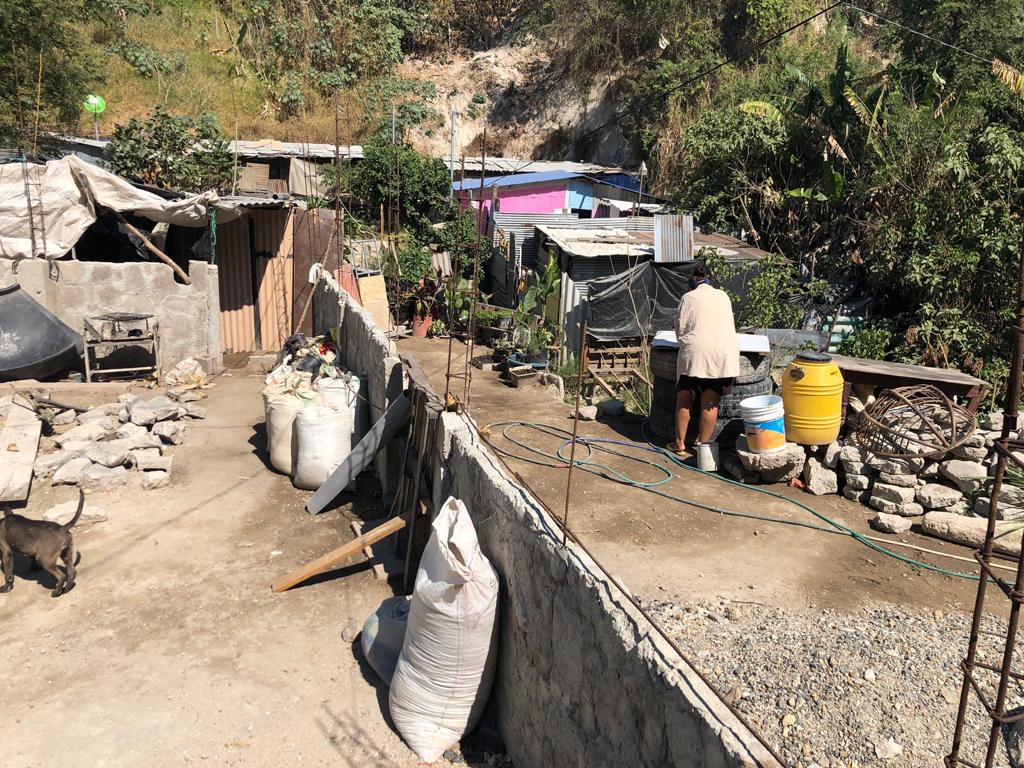Afterwards the school had an outside assembly to honor and welcome us. Over 200 students were present. For our entertainment, the students sang and the young ladies danced. They invited us up to the stage to say a few words. In my remarks, I wished them a welcome to the United States. Perhaps someday we will make that a real invitation.
Afterwards we visited the homes of several of the students. We descended a steep incline that was inaccessible by cars. Here were shacks placed next to each other in abject poverty. However, when we walked by the houses, we were greeted with smiles and friendly waves.
Entering the homes of some of the students, we found people living on the edge of survival. In one place, the family pressed upon us some beautiful, handmade baskets. No doubt the baskets were intended to be sold to help support the family. But it would have been offensive to them if we had declined their gifts.
Being at the bottom of a steep decline, when it rained the whole community was submerged in mud. The mud even invaded their houses.
I wondered how the children were able to cope while living in two separate worlds. At school, they were in a very middle class environment. The government provided them with shoes and school uniforms. But after school, they descended back into their hovels.
After graduating from ninth grade, the students have very few options. If they go to secondary schools, to survive they will be forced to join a gang. Perhaps they could work in a factory but it would not provide sufficient income to support themselves much less a family. Their own families are too poor for them to stay at home. The only viable option is to immigrate illegally. To immigrate legally would take years.
To me it seems clear that the government needs to provide financial assistance to the young people so that they can go to universities, develop skills and knowledge which they can contribute back to their communities. Otherwise the students are preparing themselves for a future that will never happen.
With the breakdown of authority, El Salvador has never recovered from the 12 years of civil war. I spoke with an elderly woman who showed me terrible scars she had received during the war. Her entire family was killed. She survived by hiding under the bodies of the dead.
We were fortunate to participate in the presentation of eight women in a micro financing, no-interest program. Because of the loans, they were able to start or expand their small businesses. They made valuable products available by using secondhand clothes or creating coffee shops, crafting jewelry, or other innovative approaches.
What is truly amazing is that in the midst of all this poverty, a certain joy persists.
This is not to romanticize poverty. The children desperately need good food, sanitary housing, and health care. They need space to grow. They need a future.
Yet I would present an incomplete picture if I did not acknowledge the joyful spirit with which they meet incredible challenges and obstacles.
Helen Keller said the world is full of suffering, but it is also full of the overcoming of suffering. Today I saw many instances of this truth.




 RSS Feed
RSS Feed